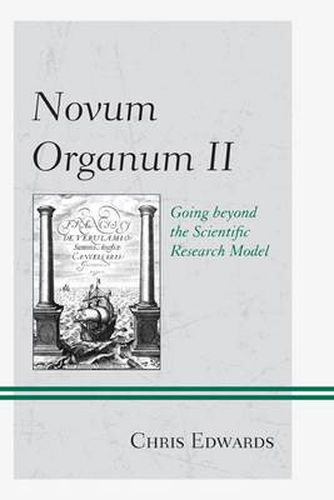Readings Newsletter
Become a Readings Member to make your shopping experience even easier.
Sign in or sign up for free!
You’re not far away from qualifying for FREE standard shipping within Australia
You’ve qualified for FREE standard shipping within Australia
The cart is loading…






In 1620, the British politician and philosopher Francis Bacon published Novum Organum (New Method) and formalized the previously scattershot methods of scientific experimentation into a method able to be replicated. In due time, the Western world would build an intellectual empire on the basis of Bacon’s concepts of scientific research. The West’s university and its scientific and medical systems all stem from Bacon’s philosophy.
But after nearly four hundred years; it is time for something new again. In mathematics, theoretical physics, and philosophy, a quiet revolution has begun. Thinkers who can study across disciplines and form analogies, who take seriously the History and Philosophy of Science and its problems of metaphysics and epistemology, have been making impressive breakthroughs. These methods have been, up until now, as random as the process of experimentation was in Bacon’s day. This timely book has come to formalize these methods, build upon Bacon’s scientific research model, and to ultimately go beyond it.
$9.00 standard shipping within Australia
FREE standard shipping within Australia for orders over $100.00
Express & International shipping calculated at checkout
In 1620, the British politician and philosopher Francis Bacon published Novum Organum (New Method) and formalized the previously scattershot methods of scientific experimentation into a method able to be replicated. In due time, the Western world would build an intellectual empire on the basis of Bacon’s concepts of scientific research. The West’s university and its scientific and medical systems all stem from Bacon’s philosophy.
But after nearly four hundred years; it is time for something new again. In mathematics, theoretical physics, and philosophy, a quiet revolution has begun. Thinkers who can study across disciplines and form analogies, who take seriously the History and Philosophy of Science and its problems of metaphysics and epistemology, have been making impressive breakthroughs. These methods have been, up until now, as random as the process of experimentation was in Bacon’s day. This timely book has come to formalize these methods, build upon Bacon’s scientific research model, and to ultimately go beyond it.